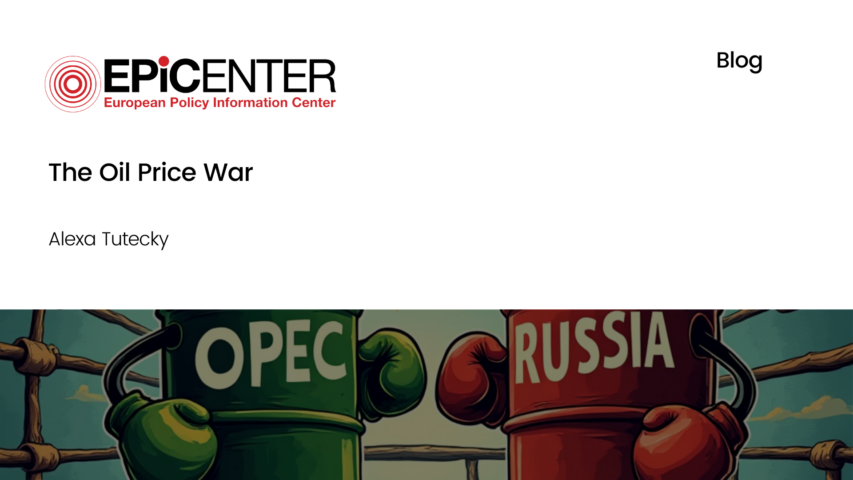The Oil Price War

The Oil Price War
Alexa Tutecky // 21 April 2020
In tandem with the stock market crash, following persisting negative news regarding the coronavirus, oil prices have drastically dropped. The current demand for oil is so low that both consumers and producers are experiencing the lowest prices in decades. There are unprecedented negative implications for markets and the economy during this record low oil price environment, with only a handful of potential silver linings.
This record drop was not only the result of the pandemic, but also a response to the price war declared by Saudi Arabia on Russia, after they discontinued cooperation with OPEC nations. After the Saudis initiated the conflict earlier in March, oil prices fell by 34%, with crude oil falling by 26%. The tension between the two nations largely originated over concerns about the U.S. shale gas industry, which has changed global energy markets.
The effects of this oil price drop have become particularly severe given the backdrop of this once-in-a-generation health crisis. 2020 presents the overwhelming challenge of a greatly increased supply of oil, at a time when demand has come to a halt. The pandemic has paralysed the global economy of approximately 14 million barrels per day (bpd). As entire metropolitan areas are under lockdown, forecasters are predicting oil consumption decreases in the 90,000 to 155,000 bpd range. Given the current circumstances, these estimates could even be optimistic.
Despite low interest rate environments, large-scale government rescue packages, and OPEC’s record agreement to cut 9.7 million barrels a day in May and June, forecasts indicate that oil prices will remain below $30 throughout 2020. This will undoubtedly decrease capital spending, worsen unemployment figures, and threaten the survival of oil companies.
According to Bloomberg’s senior editor Michael Regan, “falling oil prices mirror signs that global growth is fading.” Economic growth has declined considerably and this drastic drop in oil prices coincides with a crash in global stock markets. This is because when oil prices fall severely, it can signal to traders and analysts that the economy may be entering a recessionary state.
Currently, the oil industry throughout the world is experiencing surplus in barrels of oil due to both the drop in demand from coronavirus and from the oil price war. This surplus will not last in the long term, however. As the effects of coronavirus disappear, demand will begin to accelerate once again. Companies that have stockpiled the excess oil will be able to sell the reserves and delay having to run the pumps, which will help lower costs in the future. As they run out of storage, the cost will increase as they begin the normal production capacity. This will in turn drive the price back to long standing equilibrium.
However, in the short term, a very low oil price means that gas and diesel prices at the pump are at near all-time lows, net of taxes. As such, consumers can fill up their cars at a cheaper rate and not have it consume a large portion of their income. For most of us, this is, of course, not much consolation. Petrol prices are low, but there is a global lockdown, in which driving is not encouraged outside of purchasing necessities. However, it will be beneficial for essential workers on the front lines of the crisis, who still rely on driving.
In addition, for industries that rely on natural gas, diesel, and other fuels for their operations and shipping, their cost of fuel will also be much cheaper. These types of businesses can now operate their machinery in a much more cost-effective way. This will prove particularly useful for cruise ship companies and airlines, who are suffering tremendously in the lockdown. Of course, this will not help those business that are hibernating, or that cannot make use of low energy prices because their entire production process has been disrupted (e.g. by staff absences caused by the virus). However, it will at least be beneficial to those companies that are still operational.
To call the coronavirus-induced drop in energy prices a benefit of the crisis would be a significant exaggeration. Nonetheless, for those individuals, companies, and perhaps entire countries, who remain energy-reliant, price flexibility in the energy market makes the situation less horrific than it could have been. While this is a short-term benefit, these low prices will not last in the long term, as the market will slowly return to equilibrium.
EPICENTER publications and contributions from our member think tanks are designed to promote the discussion of economic issues and the role of markets in solving economic and social problems. As with all EPICENTER publications, the views expressed here are those of the author and not EPICENTER or its member think tanks (which have no corporate view).



